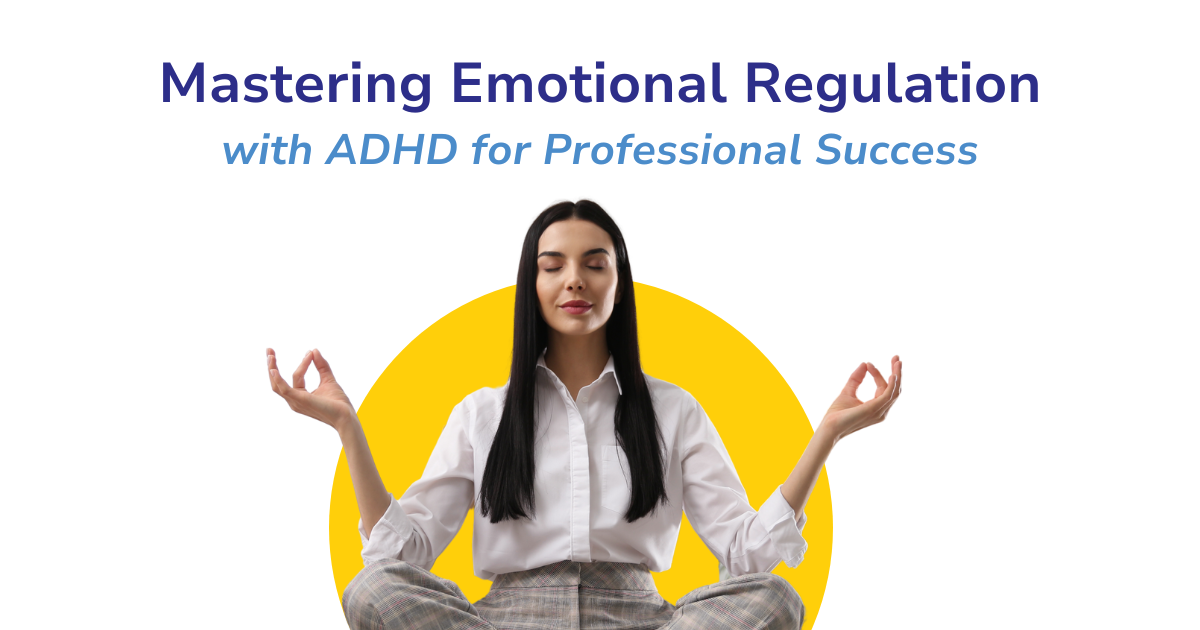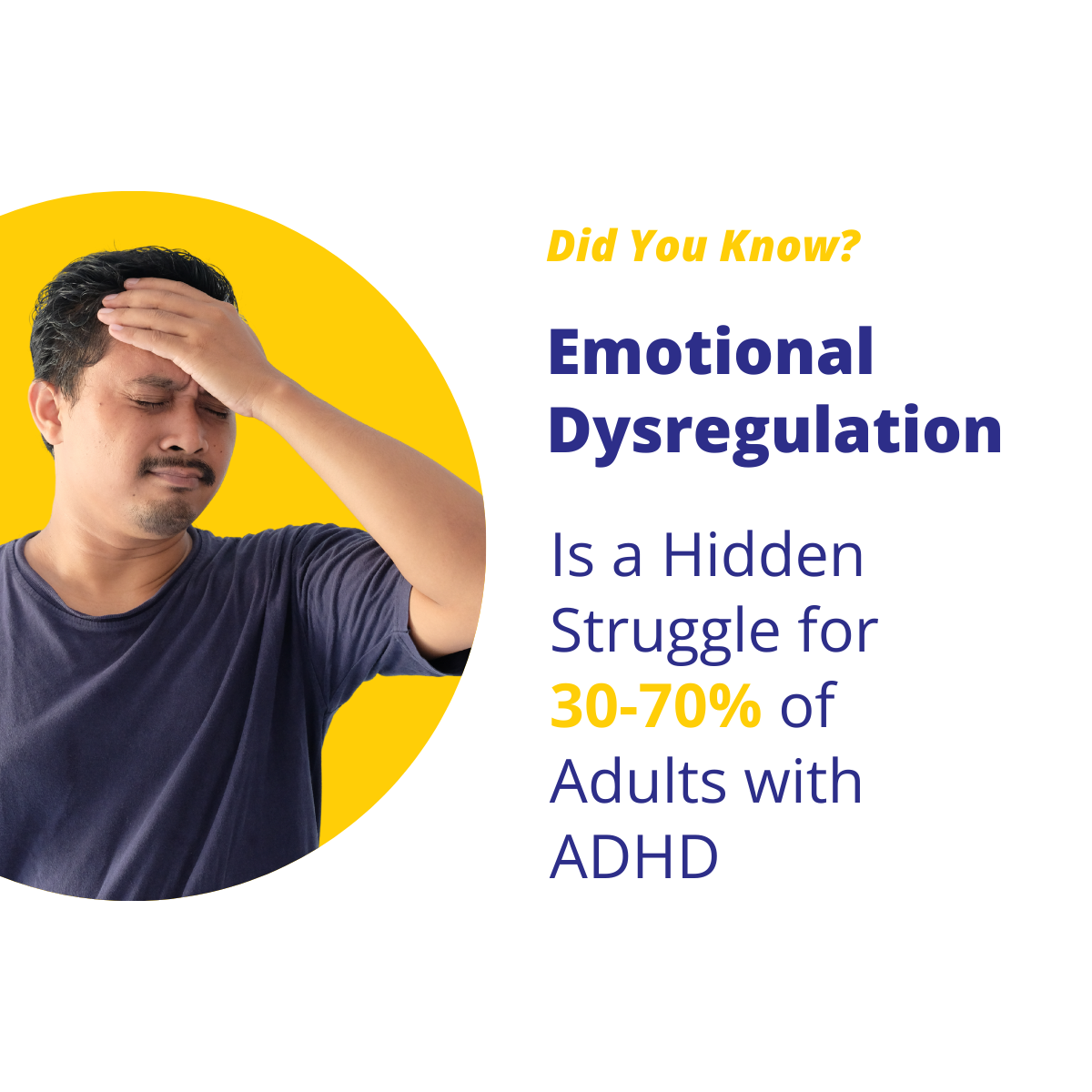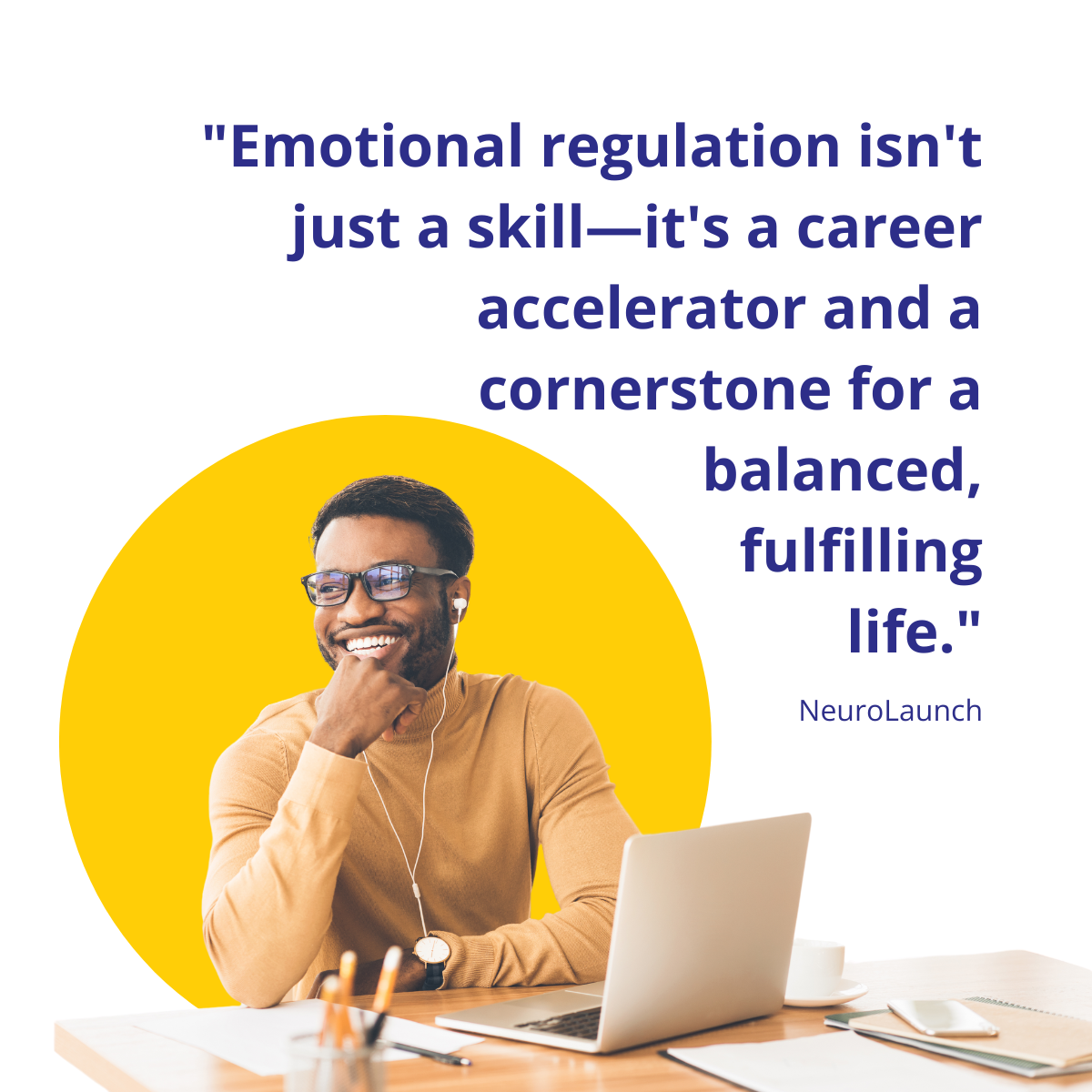
Mastering Emotional Regulation with ADHD for Professional Success
The Power of Emotional Regulation in the Workplace
Navigating a professional environment can be particularly challenging for adults with ADHD. The constant pace, distractions, and pressure can lead to feelings of overwhelm, procrastination, and missed deadlines. However, mastering emotional regulation can transform your career and overall well-being.
As a transformational ADHD life and executive function coach, I’m here to guide you through understanding emotional regulation, its impact on your brain, and how you can manage your emotions effectively. Let’s explore what emotional regulation is, why it’s challenging for individuals with ADHD, and actionable strategies to help you thrive at work.
Understanding Emotional Regulation: What It Is and Why It’s Important

What is Emotional Regulation?
Emotional regulation refers to managing and constructively responding to your emotional experiences. For adults with ADHD, emotions can feel overwhelming, making it difficult to maintain focus and productivity. Mastering emotional regulation enables you to achieve better balance, control your reactions, and remain productive even in high-stress situations.
Why is Emotional Regulation Challenging for Those with ADHD?
People with ADHD often experience heightened emotions and find it harder to recover from emotional upsets. This can manifest in the workplace as impulsivity, difficulty accepting criticism, or rapid mood swings. Understanding these emotional responses is key to gaining control over them.
Why Emotional Regulation Matters for Career Success
Effective emotional regulation leads to improved relationships with colleagues, better decision-making, and increased productivity. It’s not just about controlling your emotions—it’s about understanding them and using them to your advantage.
The Brain and Emotional Regulation: How ADHD Impacts Emotional Responses
The Role of the Amygdala
The amygdala, often called the brain’s “emotional headquarters,” processes emotions and plays a crucial role in emotional regulation. In individuals with ADHD, the amygdala can become hyperactive, leading to heightened emotional responses, stress, and anxiety.
ADHD and Emotional Dysregulation
When the amygdala is overactive, it triggers the fight-or-flight response, causing impulsive reactions. The prefrontal cortex, responsible for decision-making and impulse control, struggles to manage emotions when overwhelmed. This combination can make emotional regulation a daily challenge for adults with ADHD.
Identifying Your Triggers: The First Step in Emotional Control
Knowing what triggers your emotional responses is essential for managing them. Common triggers include:
- Stressful Situations: High-pressure meetings or tight deadlines.
- Sensory Overload: Loud environments or bright lights.
- Interpersonal Conflicts: Disagreements or misunderstandings with coworkers.
- Criticism: Negative feedback can feel overwhelming and lead to emotional dysregulation.
- Uncertainty: Facing the unknown can trigger anxiety and heightened emotions.
Identifying these triggers allows you to develop personalized strategies to manage your emotional responses.
Strategies for Handling Emotional Regulation in the Workplace
In-the-Moment Techniques
Pause and Breathe:
- When you feel emotions rising, take a moment to pause and breathe deeply. Take deep breaths to calm the nervous system and reduce the amygdala's reactivity.
- Try the 4-7-8 breathing technique to quickly regain composure. (inhale for 4, hold for 7, exhale for 8)
- By controlling the breath, you reduce overstimulation and calm the emotions, giving you access to your “thinking brain” again.
- This helps calm the physiological response and allows you to choose a response.
Grounding Techniques:
- Use your physical sensations to ground yourself in the present, such as feeling your feet on the ground or holding something cold.
- Focus on what you can see, hear, touch, taste, and smell
- Grounding helps to bring you back to the moment and refocuses your mind and body on the here and now to give you back control.
Label the Emotion:
- Identify what you're feeling.
- Simply naming the emotion—frustration, disappointment, or anxiety—can help reduce its power. “Name it to Tame it”.
- It can reduce the intensity of the emotion and improve your ability to manage it
Cognitive Reframing:
- Challenge negative thoughts and replace them with something more positive
- This can shift the negative distorted thought into a more productive perspective
- Shifting how you interpret will help shift how you respond
- Ask yourself, "Is this thought helpful?"
Long-Term Strategies to Build Emotional Resilience
Mindfulness and Meditation
Regular mindfulness practices reduce emotional reactivity and improve self-awareness. Over time, this helps you better regulate your emotions.
Physical Exercise
Exercise helps release pent-up energy and improve mood, making it easier to manage emotions.
Coaching and Therapy
Working with an ADHD coach or therapist can provide personalized strategies to improve emotional regulation and identify unhelpful thought patterns.
Routine and Structure
Establishing consistent routines reduces stress and provides a sense of stability, making it easier to manage emotions.
Building Emotional Intelligence
Practice recognizing and understanding your emotions, as well as those of others. A feelings wheel can help expand your emotional vocabulary.
How Emotional Regulation Impacts Professional Success
Mastering emotional regulation can transform your professional life.
Here’s how:
- Enhanced Productivity: Managing emotions effectively helps you maintain focus and accomplish more in less time.
- Improved Relationships: Emotional intelligence fosters better communication and collaboration with colleagues.
- Better Decision-Making: Controlling your emotions allows for clearer, more rational decision-making.
- Career Advancement: Professionals who exhibit strong emotional regulation are often viewed as leaders, opening doors to new opportunities.
The Effects on Life and Work
Professionals with strong emotional regulation skills tend to be more resilient. They bounce back from setbacks swiftly and maintain their composure under pressure. This resilience is not just beneficial for career success; it enhances overall quality of life, bringing greater satisfaction and balance.
Your Path to Professional Success
Building emotional regulation is a game-changer for adults with ADHD. Understanding and managing your emotions can unlock new levels of personal and professional success. This journey toward emotional control leads to greater well-being, improved relationships, and enhanced career potential.
Remember, this transformation is a journey— one that can lead to a more fulfilling, balanced, and successful life. If you're ready to take control of your emotional landscape and enhance your professional success, consider working with an ADHD life coach who can guide you on this transformational path.
Together, we can create a personalized plan that empowers you to thrive in your career and beyond. While the path may be challenging, the rewards are profound.
All the best always,


Diagnosed with ADHD at 50, I truly understand the challenges you face—I’ve been there, too. As the founder of New Jersey Coaching Services, I combine my expertise in Nursing and Family Mental Health with my personal journey to help adults with ADHD turn their challenges into strengths. Ready to transform your life? Schedule a call today.
